Sherman Cox's Blog
May 29, 2023
July 8, 2021
Amos Sings The Blues
Amos 7:7-15
In our Bible reading, Amos, the great Blues Prophet, sings a song that no one wanted to hear.
This is not a Gospel Song about “Good Times Commeth.” No, this is a Blues Song. This is a song bout struggle and pain.
God has judged us,And God said we wrong.
God Judged us,
And God said we wrong.
God Said destructions coming,
And it won't be long.
That’s a blues song that no one wanted to hear. A blues song that God instructed Amos to sing to His people.
Now singing this song could get you killed. You know sometimes even though the Blues singer must tell the truth, it can be a dangerous road
Amos, the Blues singing prophet, sang his song and got banished.
and the lesson for us today.
Is that sometimes we must sing a song no one wants to hear. Sometimes we much sing a song that will get us killed.
But the truth of the blues calls us to sing it. Amos sang it. You sing it.
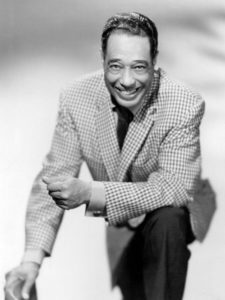
“I merely took the energy it takes to pout and wrote some blues.”
Duke Ellington
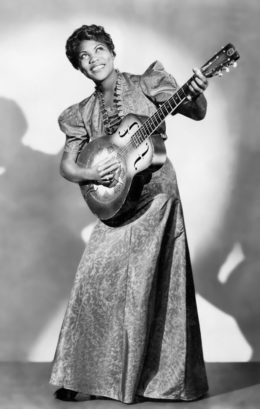
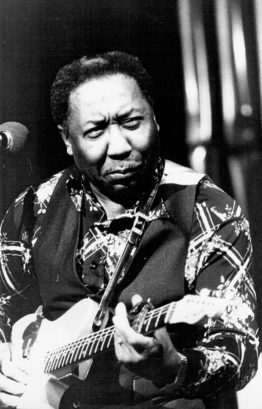
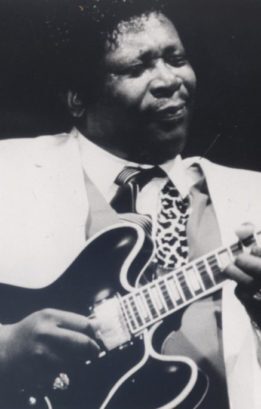
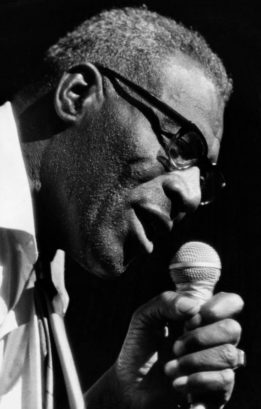
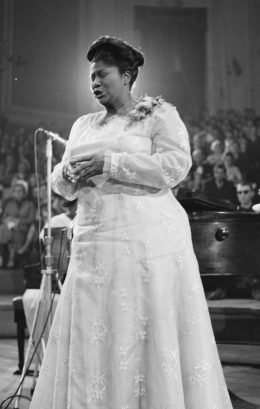
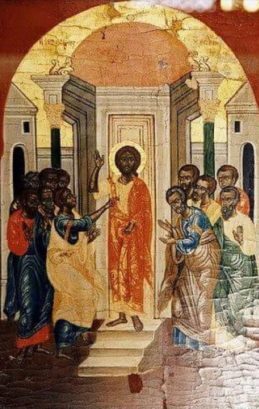
July 1, 2021
Cover Jesus Promised Me a Home Over There – Harmonica
Something about “blues based gospel.” Sometimes songs like this are derided as promising “pie in the sky when you die.” But there is something songs like this teach us. They teach us that we know that we are somebody in spite of what we are going through now and in spite of the struggles we have to deal with.
You may “red-line” us out of decent housing today, but Jesus promised me a home over there. You may put children in cages who seek refuge and asylum, but Jesus promised me a home over there. There is sometimes a moment when we must hear great words.
Lessons From a Singing Coach
Preacher, Sing Like You Preach
Well, if you have been around my music endeavors for any period of time, you know that singing seems to often be a part of it.
Whether I am strumming the guitar, or playing chords on the piano, or perhaps playing harmonica riffs. The one thing that is constant is singing along to the music.
A friend told me that perhaps I should see a vocal coach, in contrast to a vocal teacher. I have had a few of those folks here and there. So I figured I would do a few lessons with Paul McKay.
What did I learn in two lessons of online virtual coaching?
Good question.
The first thing I learned was the need to be relaxed and natural while singing.
The second thing I learned was a number of exercises that explored multiple vowels on the pentatonic scale. The basic idea was to practice the pentatonic scale and get it in my ear and my head.
That really appealed to me as one who is singing the blues and gospel. Both make extensive use of the pentatonic scale.
Another thing I learned, and this was kind of big.
The coach recognized that I, use a variety of cadences, rhythms, tones, textures, and even octaves in my speaking.
This is as a result of my practice and training as a Christian Preacher in the African American Preaching Tradition. My coach suggested the following exercise that might help me to get a better sound.
He suggested that I first speak the words of the song. As I would as a preacher. Just speak it.
Then speak the words again along to the music.
Finally, translate that output (the cadence, rhythm, vowel vocalization, etc) into singing what was spoken.
Yes, there is no direct transcription, but get close and keep the feel of the spoken version. It really helped me to understand what I was doing wrong and how to fix a lot of problems in singing If I could do it, it really helped me to stay natural and also gave me a wide variety of approaches to the song.
This really appealed to me as one who had done a lot of preaching.
The last thing I noted in my studies with my vocal coach brother is that you really have to pay close attention and think about EVERY note.
At least at first, pay attention until it becomes second nature.
EVERY note matters and EVERY part of EVERY NOTE matters (beginning, middle, and end).
So how do you start the note? How do you end the note? Do you use a vibrato or not? Do you slide into the note or hit it straight on? All of these things are important when you are singing.
Yes vocal coaching paid off. I didn’t pursue them right now, and may come back eventually. But these lessons will help me in the journey.
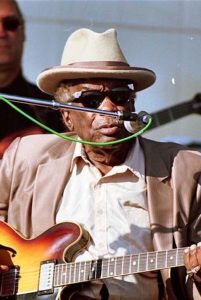
“The blues tells a story. Every line of the blues has meaning.”
John Lee Hooker






June 29, 2021
How To Do Vibrato on Harmonica
The other day I listened to a harmonica player on YouTube. The note playing was perfect, but something was missing. The notes felt lifeless. The playing seemed like something was just not there. What could be done?
It then hit me. The player had no vibrato at all.
What is vibrato? It is the minor fluctuations in sound that you hear when someone sings or plays notes.
Vibrato is one of those things that just takes your playing to the next level. But how do you do it? There are a number of different ways to play a vibrato and each one sounds a bit different. In this article, I’m gonna give you an example of four approaches to doing a vibrato on a harmonica. Learn as may as you can to increase the sounds that are at your disposal as a blues musician.
As noted above, I am writing four methods. There are probably some more. And you can combine these methods to give a different sound.
In addition, I think that the Face and the Diaphragm vibrato may be the same thing, but I haven’t convinced myself of it yet.
At any rate, I am going to name these approaches the Throat or Cough vibrato, the Face or Jaw vibrato, the Diaphragm or gut vibrato, and the Hand or Wah-Wah vibrato.
So lets talk about them one by one.
THROAT (COUGH)The throat method causes the fluctuations in tone by the throat. So the focal point of this vibrato method is in the throat. You can begin getting at this by a slight cough. Now please don’t overdo this, it is only to get you to get the feel. Don’t be too abrasive or harsh in the cough. But give a very slight cough as you draw and blow through the harmonica.
At first this kind of vibrato can be almost jerky sounding. It can really break up the note by putting slight gaps into the sound. But with practice you can make it more natural sounding until it sounds like you. This vibrato is really in the face of the listener.
This is probably the method I use the most.
But go head and try it. As you play it, you will get that vibrato into your ear. Then when it is in your ear, you can play it when the sound is called for.
FACE ( JAW)The next method is the face or jaw method. This is one that you see some singers use when they are introducing a vibrato into their singing. It is sometimes called “Gospel Jaw” and if you look at some old videos of Whitney Houston singing you will see that she used this form of Vibrato. Now some singing teachers say you shouldn’t be moving your jaw like that. But hey, if Whitney Houston can do it and sound like that, then maybe it can be helpful for those of us who use the harp.
The focal point of this kind of vibrato is in the jaw. As I do this kind of vibrato, I can feel a slight rush of air that corresponds to the lip vibrations. That is pushed and pulled slightly from the jaw area. In this method the harp moves as you are vibrating. This can cause mechanical problems as it unseats your embouchure (mouth configuration for playing) and thus I really don’t suggest using this one, at least at first. After having said that, it is one I use from time to time, I think because it gives me different sound.
As noted above, this method creates a more subtle vibrato than the throat one.
This is the method I use when singing a vibrato so I do play around with it.
HAND (WAH)The next method of playing vibrato on the harmonica is the hand method. And it gives you a unique sound. It gives you a very “harmonica-like sound.” You start with the closed grip around the harmonica and you then open your hand as you draw or blow. Then you get that Wah-Wah sound. Done well you can get a very human-voice sound.
You see some harmonica players almost fanning because they are using this as a vibrato method. They open and close their hand around the harmonica very quickly. Now many use this sound for more than vibrato, they use it for other sounds as I noted. They can use it to get a cry or a human sounding sound. The focal point of this kind of vibrato is the hand as it lets air in or closes it off.
Whatever other method you use, you must use this method in addition to it. the hand wah is one of the signature sounds of the harp. Start playing around with what closing and opening your hands does to your sound.
DIAPHRAGM (GUT)The last method I want to talk about is the diaphragm method of vibrato. Here your vibrato originates deep within and you push and pull slightly from that belly, gut, or diagphram. You push or pull slightly as you draw or blow and you get a slight pulsation. This gives you a more subtle vibrato than the Hand and the Throat. This also is a more singer -ike vibrato like the face vibrato.
I have found that I can get started thinking about this method by tightening and loosening by gut as I play. Think the “Hey” sound. Sing “Hey” as you play. Over time it will become more natural. I need to practice this method more. But the fluctuations will come as you use the “Hey” articulation to introduce the fluctuations.
WHAT METHOD SHOULD I DO FIRST?The one that I did first was the cough vibrato. Then I tried the hand vibrato. However, I would suggest that you get the hand first because it is such an important sound on the harmonica. Start listening to the sounds as you play them and see how they work when you open and close your hands around the harp.
Then after the hand, just start playing around with the other methods. Get the sound in your head and hear what works for you.
Here is a video of me playing the different methods.
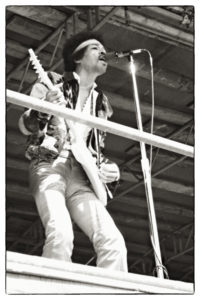
“Blues is easy to play, but hard to feel.”
Jemi Hendrix






June 25, 2021
Why The Thorn?
2 Corinthians 12:6-10
In our reading today Paul has an uplifting mood. However even in this elated mode we hear the overtones of the blues in his yearnings.
A thorn was given to Paul. Paul said that this was done so that he would not be too elated. It was given to him to keep him from getting “the big head.”
Paul is singing the Gospel Song of God blessings even in pain and hurt. No doubt Paul felt encouraged, but we can’t get past the reality that he wanted the thorn taken away.
Three times Paul went to the Lord and begged that this thorn would be removed. And three times the Lord replied, “My grace is sufficient…My power is made great in weakness.”
Normally, members of the congregation shouts when they hear a Gospel Song like this, but the blues doesn’t allow us to leave this story so hastily.
Yes, even Paul seems content to leave the story here, by singing the line that “Greatness comes through weakness.”
Yes Paul is singing a Gospel Song now. A song about triumph through pain. About weakness making us strong.
But if you listen carefully to the story, you can’t help but what did Paul sing before this?
What is the blues song that Paul sang the 1st and the 2nd time he begged for the removal of the thorn.
For all we know, Paul may have even sang this blues song after he wrote this Gospel Song codified in the letter we see today.
What blues song am I talking about?
I’m glad you asked. Paul’s song may have gone like this:
I asked You to take the thorn away,
And you said no.
I asked You to take the thorn away,
And you said no.
You said the thorn was good for me
But I'm so tired of this woe.
Yes, Paul wrote a gospel song about how weakness is made strong. But I can’t help but hear the anguish of this song that wasn’t recorded in the Bible. That song thematically is related to the great blues song that Jesus sang on the cross – “My God, My God, Why.”
Some will disagree with me, but one day you gonna wish that you came to terms with Paul’s blues song before you ran off and starting shouting about his Gospel Song.
Before you sing the Gospel Song of victory and power in weakness, make sure you sing the blues song of “Why The Thorn.” Let it marinate in your spirit and give you gifts that only telling the truth will give you.
These gifts will help you walk the rough road we all have to walk in this life.
You may choose to sing Paul’s Gospel Song after you sing Paul’s blues song. Or you may choose to sing something else. But you will be on the road that only truth can take you on.
The Blues Road…
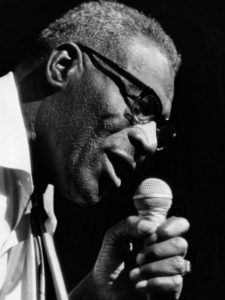
“When you ain’t got no money, you got the blues.”
Howlin Wolf






June 24, 2021
Member’s Only
Blues DevotionsIt’s A Private Party
Bobby “Blue” Bland sings about an exclusive party that is open to anybody who has a “broken heart.”
This party is not one that you can buy your way into.
This party is one that is just for those hurt by a lover. It appears to be an exclusive club, but who among us have not had such an occurrence?
Many parties are judged by who is invited. Here the party is judged by those who are invited. Those who are going to the party. Bobby Bland sings about a party where it is exclusive, but in the sense of the “First being last.” Matthew 20:16
The party is like the wedding that Jesus told us about. You know the one, where the invited guests were not worthy (perhaps they didn’t have the broken heart that Bobby Bland sang about). So they went out into the highways and byways to invite everyone. Matthew 22:8-10.
The story turns when a man walked in and didn’t have the right clothes on. He didn’t have the one requirement he needed to be there. The white robe. And was cast out the party.
How did you get in here without the requirements. I can’t help but think of someone going to Bobby Bland’s party without a broken heart. No, it’s members only tonight.
This party is Member’s Only. And it ain’t about your money. It ain’t about your status. In the Biblical Parable it is the white robe. And some theologians will go running theologically with the idea of it being Christ’s righteousness.
But Bobby Blue Bland simply will have us think about that robe being our fitness to be at the party, which is nothing more than our broken heart.
Put on the provided robe and come on in, cause it’s Member’s Only Tonight yall.
PrayerLord, we come to the party that you have prepared. We ask that you throw us a party that even those who don’t have the broken heart would wish they could enjoy.
June 21, 2021
Nobody Loves Me But My Mother
Blues DevotionsAnd She Could Be Jiving Too
B. B. King starts this Blues with a statement that fundamentally reverberates with the essence of the Blues.
BB says, “Nobody Loves me But My Mother, And she could be Jiving Too.”
Now that is Blues. I think my mother loves me, but I can’t even count on that. King comes back and tells us that this is why he acts the way he does when his love does the things that she does.
Nobody Loves me but my mother, and that’s why I act the way I do.
That’s blues…
Before he sings and after he sings, King plays his guitar with an anguish that pretty much tells musically what he otherwise tells lyrically.
We can spend some time marveling in the truthfulness of the telling of the story. The song does not hide anything here. It tells a story of a pain that is deep. It reminds us of the Negro Spiritual, “Sometimes I feel like a Motherless Child.”
Sometimes I feel as though I am alone and can’t even count on my Mother. King tells the truth here.
You ever felt like that?
Before you quickly jump to how good God is and how he picked you up, turned you around and placed your feet on solid ground, lets come to the reality that this pain that King speaks of is not something that followers of God sidestep. At least not fully.
This forsakenness was felt so deep by the founder of the movement that carries his name. Jesus Christ himself knew about this forsakenness that the Slave singer sang about, and BB King here sings as well.
But No, I want to look at this forsakenness.
On that “Old Rugged Cross” Jesus cried: “My God My God Why hast thou forsaken me?” Matt. 27:46.
Why is Pain in Scripture?Why is this in the scripture?
That pain…
That hurt…
That God forsakenness?
Could it be that it is the same reason why BB King sang what he sang.
Or maybe it is the same reason why our ancestors in bondage sang what they sang.
Why, do we sing these songs?
Are they helpful?
I am not here to tell you with certainty that it is good, but there is something interesting about the need to articulate the pain.
There seems to be something valuable in just telling the story.
Dr. Zach Mills, author of the last Blues Preacher, told me in a conversation, “The worst thing in life is not talking about pain and heartache, but it is not having the words to be able to articulate the pain and heartache.”
Not having the words is the ultimate issue and pain.
Yes, I may not be able to change the fact that I question the motives of my mother. I may not be able to change the fact that I did what i was supposed to do, and like Jesus, find myself on a cross that I cannot get down from and that God will not take me down from.
I Can Sing The SongAll that may be true. But one thing I can do, is sing the song. I can tell the story. I can articulate the pain. And hopefully just that articulation will ultimately change the trajectory of my living in that pain.
In BB’s song, he explains the way he lives is in light of this pain and tauma.
In Jesus’ case, after he “Sang the Blues” of “My God My God Why?” He later was able to get in a postion to say, “Into they hands i commit my spirit.” Luke 23:46.
The Slave who sang motherless child does like BB doesn’t give us any indication of overcoming the situation. But perhaps just telling the story. Perhaps singing the song. Perhaps just standing there tells you that I am not fully beaten by this.
Does telling the story help things?
Again, I do not know for sure.
But one thing i do know…as long as you tell the story, your very articulation is proof to the universe that you are still there.
Keep Singing The SongArticulation is proof that I at least know I don’t deserve this. And even though my trauma may affect this relationship or the next relationship, I still aint’ gonna give up. Cause deep within singing the song still has a small glimmer of hope.
Maybe that’s all it is…
I am still here. Cause I sing this song. Instead of giving up in despair, I’m gonna sing this song of pain.
This ain’t what we want to hear, I ain’t gonna guarantee you anything, just encourage you that if you ain’t got nothing else. Just keep singing the song.
PrayerHoly God, Sometimes we just wonder where you are and why you ain’t showing up. In those moments, we can’t do anything but articulate that pain. Lord, please draw near to us even when we can’t do anything but cry as our brother Jesus did when he wondered why…
June 17, 2021
What Is The Blues Theologian Blog?






About five years ago, I began studying music. I played trumpet as a youngster, but I always wanted to play guitar.
So at the age of 46, I began studying the guitar. A few private lessons here and there and then making use of the great website, JustinGuitar.Com. If you want to learn guitar, do it, and hit that website, it’s free.
Music in Middle AgeI played for a bit, before I started singing while playing and then started in earnest with the Harmonica.
What is interesting is the role of the Blues in both the study of Harmonica and that of Guitar.
Keith Richards, lead guitarist of the Rolling Stones, said, “If you don’t know the blues… there’s no point in picking up the guitar and playing rock and roll or any other form of popular music.”
I think Richards’ statement could probably be said for harmonica as well. While there is a thriving country harmonica community, even it is influenced by the Blues.
Now to that point in my life, I had not listened to much blues. One could argue, however, that I got some blues second hand from my love of the classic era of Black Gospel Music. But be that as it may, I knew little more of Blues music besides the stories of rendezvous with the devil, highly sexualized lyrics, and just plain ole griping about things.
Appreciating the BluesIt didn’t appeal to me, however, my study of harmonica and guitar really taught me an appreciation.
This Blog is a look at my attempts to learn the music as well as make connections to my theological training.
 Prominence of the Blues
Prominence of the Blues“If you don’t know the blues… there’s no point in picking up the guitar and playing rock and roll or any other form of popular music.” –
Keith Richards



